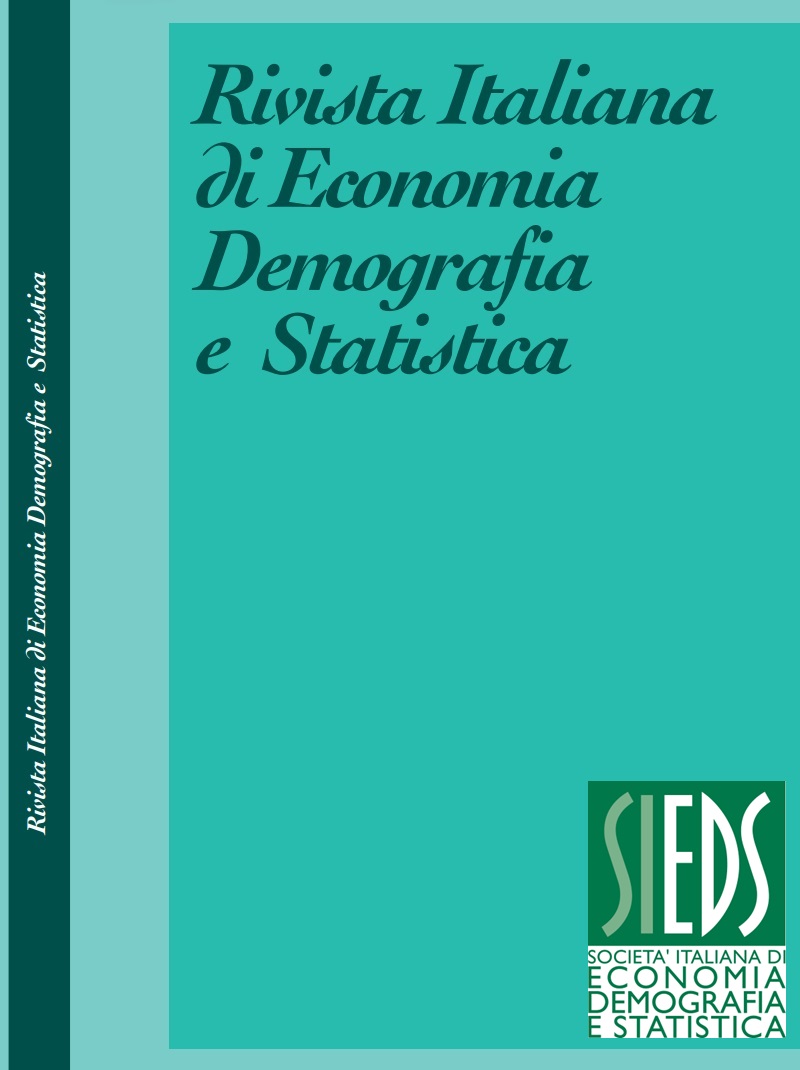Longevity: a family matter? Insights from an inland village of Sardinia (Italy), 1850–2010
DOI:
https://doi.org/10.71014/sieds.v77i2.178Abstract
Familial transmission of longevity is a primarily studied topic in human longevity research. The contribution of the genetic component inherited as part of the shared family DNA is hard to disentangle from that of the familiar environment. Based on the analysis of a genealogical database of an in-land village in Sardinia, this study aims to provide insights into the possible role of familial transmission of survival, estimating the effects of parental loss and parental longevity in two significant moments of individual life: in early childhood and at older ages. Using event history methods, survival trajectories of individuals born during the period 1850-1910 in a village of Sardinia (Italy) were analysed. It emerged that effects of parents' survival occur both in the short and long term. Mother’s death before five years of age increases the mortality rates of the offspring, which are mitigated by the presence of at least one sister who can replace her in the care tasks. At older ages, only maternal survival is significant for Ego’s longevity. The findings point to the relevance of the genetic component. Still, it suggests reflecting on the importance of the social dimension, the possible role of care and the transmission of knowledge and cultural capital, and social networks.
Downloads
Published
Issue
Section
License
Copyright (c) 2023 Luisa Salaris, Nicola Tedesco

This work is licensed under a Creative Commons Attribution 4.0 International License.



